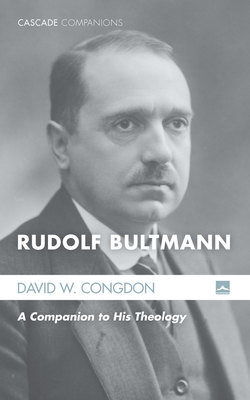Описание книги
Rudolf Bultmann is one of the most widely known but least read theologians of the twentieth century. He is famous as the one who «demythologized» the New Testament, but very few understand what he meant by this or how his hermeneutical program connects to the other areas of his theological project. Bultmann presents a unique challenge to readers, not only because of his radical theological inquiry but also because of the way his ideas are worked out over time, primarily through short, occasional writings that present complex issues in a disarmingly straightforward manner. In this introduction to his theology–the first of its kind in more than twenty years–David W. Congdon guides readers through ten central themes in Bultmann's theology, ranging from eschatology and dialectic to freedom and advent. By gaining an understanding of these themes, students of Bultmann will have the necessary tools to understand and profit from his writings. The result is not only an accessible guide for those encountering Bultmann for the first time but also a cohesive, systematic presentation of his thought for those wondering how his work might speak to our current context.
